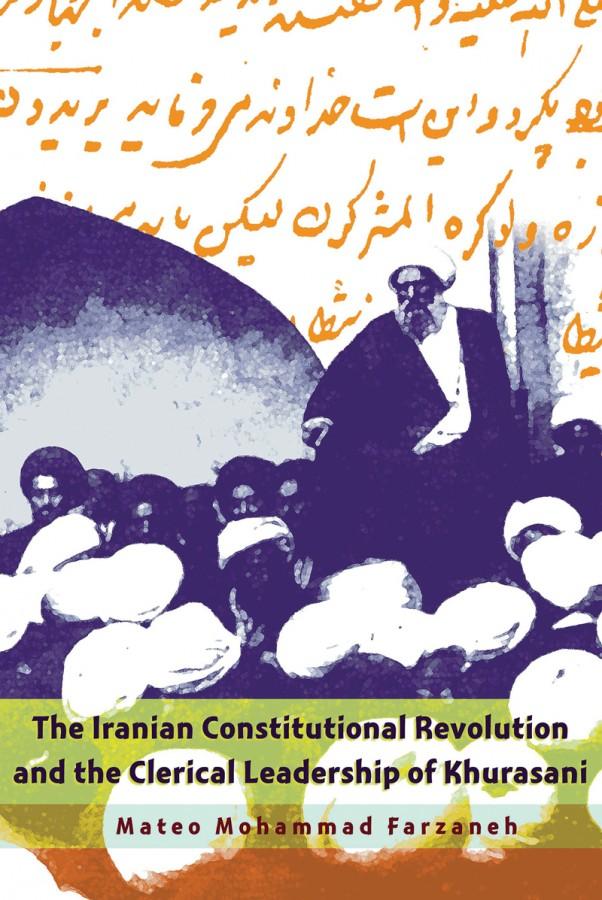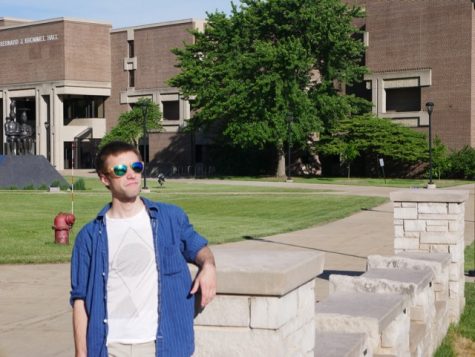Khurasani – A Tale of Crisis, Revolution and Reform
More Arts & Life
Courtesy of Syracuse University Press
A work of intense study and discipline, Mateo Farzaneh’s “The Iranian Constitutional Revolution and the Clerical Leadership of Khurasani” is a must read for history buffs and those seeking a greater understanding of the world.
It is only through the work of great and uncommon thinkers, in times of chaos and political upheaval, that revolution and true justice become possible.
In his book, “The Iranian Constitutional Revolution and the Clerical Leadership of Khurasani,” Mateo Farzaneh, professor of history, examines the influence of Iranian Cleric Muhammad Kazim Khurasani upon the Iranian Constitutional Revolution during the turn of the 20th century — an event which propelled Iran towards progressive and intellectual reform and democratic governance.
Khurasani’s most progressive and controversial works remain surprisingly obscure even in Iranian accounts, and are virtually unknown in those of the west. It was this lack of recognition, in part, that drew Farzaneh to document and analyze the revolutionary, legal and religious works Khurasani established during his lifetime.
“I had a vague idea of what I wanted to do. This book is actually a revision of my doctoral dissertation,” said Farzaneh. His professors at the time warned him it would be a long and time consuming project, requiring vast amounts of research. “Khurasani is not somebody people have done work on, so he’s a complete unknown to the western scholarship, completely unknown, in many aspects, to the Iranians as far as how much he has helped the Iranian Constitutional Revolution succeed.”
Khurasani was among the first — and most influential — of Iranian clerics to question the incompatibility of Sharia law and constitutional government. “(Khurasani) comes across a very, very strong opposition from his own establishment; saying that they’re totally against a constitutional form of government. They deem it un-Islamic, anti-Islamic — pure evil,” said Farzaneh. “They look at the freedom the parliament gives to the girls to go to school as totally against Islam and Khurasani says, ‘absolutely not.’ There’s nowhere in Islamic text that says that is a norm…the allowing of people to participate in democratic elections, he believes, is very Islamic to its core.”
It was, in no small part, through his work that Iran was able to merge Islamic law and western conceptions of democratic government — in an era of monarchical corruption, urban and rural domination by ultra-conservative Ulama, and fractured tribal governance in countryside, and a modernized Russia hungry for Iran’s northern provinces.
Farzaneh embarked on an extensive journey in researching Khurasani and the Iranian Constitutional Revolution, venturing through miles of legal and religious texts; contemporary sources including letters, telegraphs, newspapers and journals of the time; and the writings of pro-constitutional and anti-constitutional clerics of the Iranian Ulama.
The book provides a wealth of historical context to set the revolutionary stage, examining the many factors, key players, and influences leading up to Khurasani’s role in the Iranian Constitutional Revolution.
Farzaneh intends to promote “The Iranian Constitutional Revolution and the Clerical Leadership of Khurasani” over the second half of the summer and throughout the upcoming fall semester.
“I plan to do book-talks at bookstores and having the books available…WBEZ has contacted me to do an interview about the book on ‘Worldview’…once we get that organized I think what should come after it (are) the bookstore talks.”
Farzaneh has already been invited to speak at seven universities across the United States during the fall. “(They’re) mostly in California, Oklahoma and Texas (which have) centers for Iranian studies and Middle Eastern studies (that are) really interested in this sort of work. So I have to work my way into our Midwest colleges and then back east and probably south.”
He said his tour may not be limited to bookstores and universities.
“(I would speak) anywhere that has an audience that would be interested, so I really don’t care about the venue,” he said. “So it could be a coffee-shop somewhere, it could be down in the basement here — it could out in the cold somewhere; preferably not. Anywhere where people would be interested.
“That’s what I want: people that are interested and are enthusiastic about a better future for everybody.”
Your donation will support the student journalists of Northeastern Illinois University's The Independent, either in writers' payment, additional supplies and other items of note. Your contribution will allow us to purchase additional equipment for writers/photographers/illustrators and cover our annual website hosting costs.





